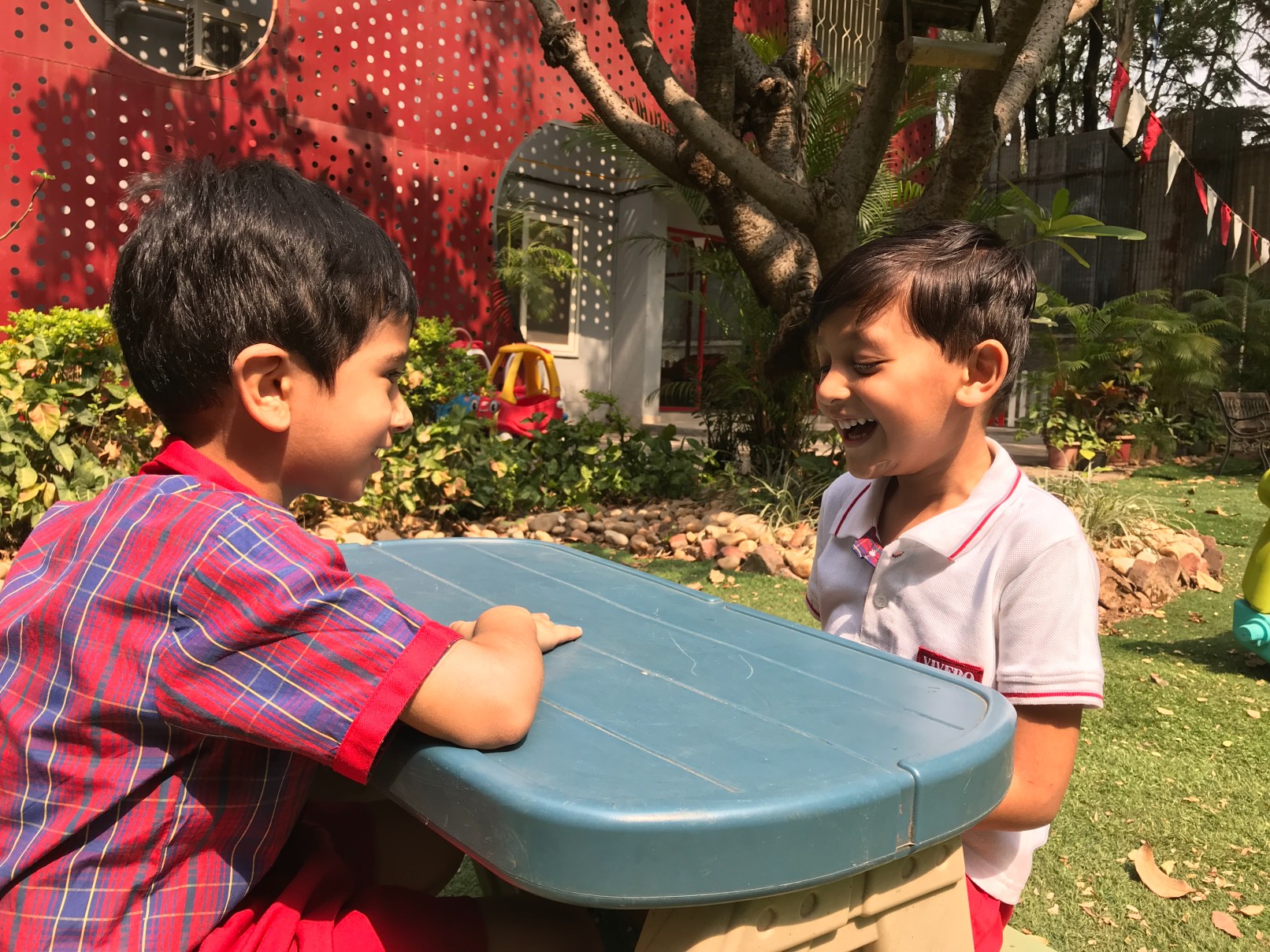- Call/Whatsapp: +91-9372801276
- Mail us: info@viverointernational.com
More than just a chance to have fun, play is serious business when it comes to a child's health and development. From peek-a-boo to pat-a-cake and hide-and-seek to hopscotch, the many forms of play enrich a child's brain, body and life in important ways.
Research shows play can improve children's abilities to plan, organize, get along with others and regulate emotions. In addition, play also helps with language, math, social skills, and even helps children cope with stress.
Children who have a positive start to their new environment are more likely to feel comfortable, relaxed and valued, feel good about themselves as learners and have a sense of belonging to the pre-school community. Most children settle in without too many concerns but there are some children who need more time to develop trust.

Types of play: Mix it up
Different types of play have different benefits for children:
Toys and object play
Object play is any play involving an object, and it ranges from young infants grasping and mouthing anything within reach, to toddlers stacking blocks, and older children playing with a kitchen set and play food. While object play often involves toys, it certainly isn't exclusive to toys. Preschool-age children also use objects to develop abstract thought and concepts like symbolism, using a banana as a telephone, for example, along with sharing and taking turns. Toys can greatly enrich play and they help children to develop. They fire the imagination, laying the foundation for improving cognitive and motor skills. They also help teach the importance of sharing, cooperating and communicating. Toys are constantly evolving, reflecting our culture and our lifestyles.
Physical play
Physical fun such as free play helps develop children's motor skills and builds emotional intelligence. The gentle thrill of a playground slide, for example, lets a child build confidence as they take risks in a relatively safe environment. Games such as duck-duck-goose and tag also help children build other socio-emotional skills such as empathy as children learn to be careful not to hurt others by tapping someone too hard. You can also provide opportunities for organized sports to learn teamwork. Outdoor play is particularly important because it lets children use all their senses to build skills like spatial awareness and balance. It can also improve a child's attention span
Pretend play
Pretend play is much more than simple play activities; it requires advanced thinking strategies, communication, and social skills. Through pretend play, children learn to do things like negotiate, consider others’ perspectives, transfer knowledge from one situation to another, delay gratification, balance their own ideas with others, develop a plan and act on it, explore symbolism, express and listen to thoughts and ideas, assign tasks and roles, and synthesize different information and ideas. In this creative play description, we could just as easily be describing the skills needed to successfully manage a work project for an adult as describing children’s pretend play.
Remember
Giving your child plenty of opportunities to play is one of the best ways to help them grow into curious, creative, healthy, and happy adults equipped with the skills they need today. Next time your child asks to play with you, jump at the opportunity! Share the joy of discovery as you connect with each other and the world around you.
